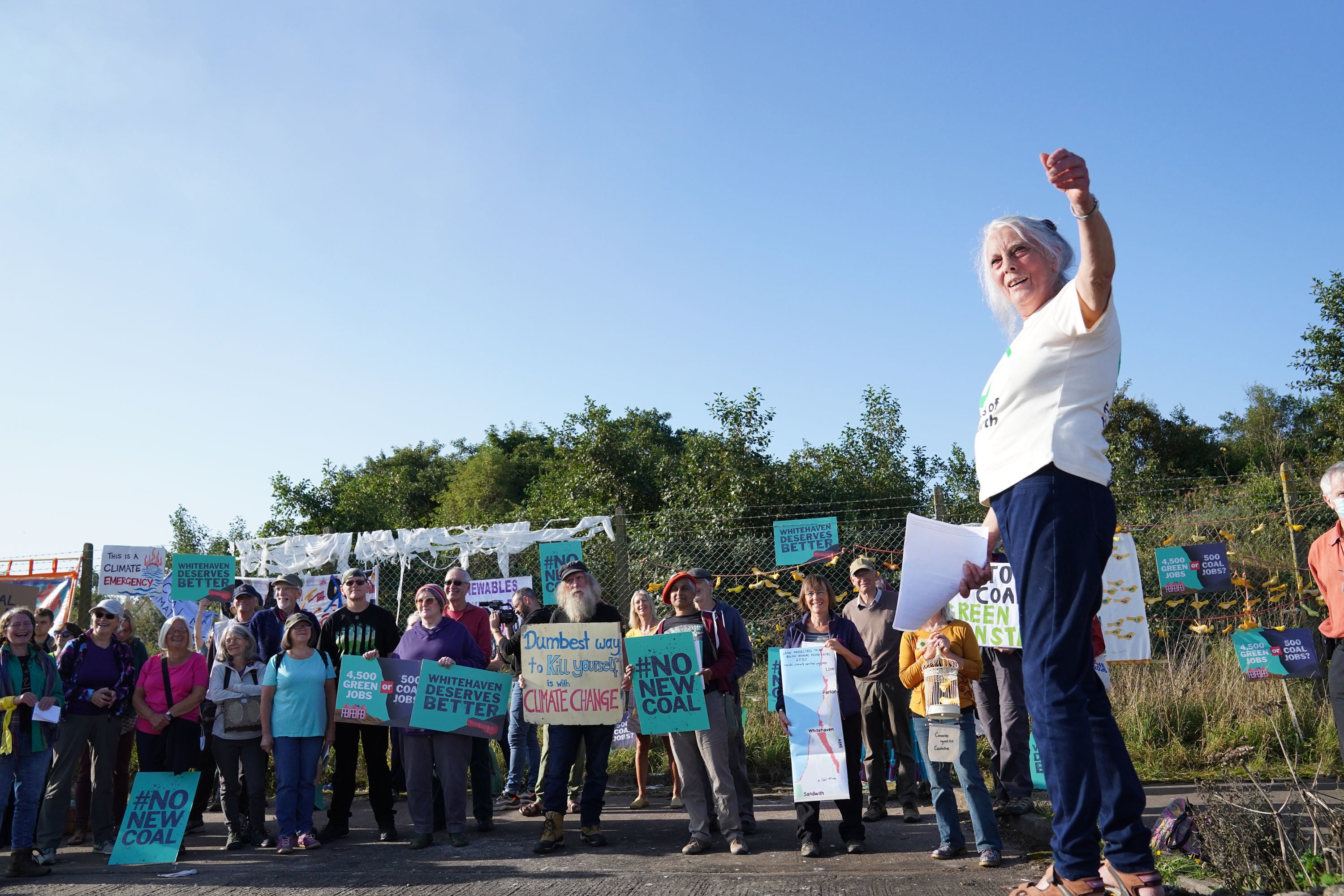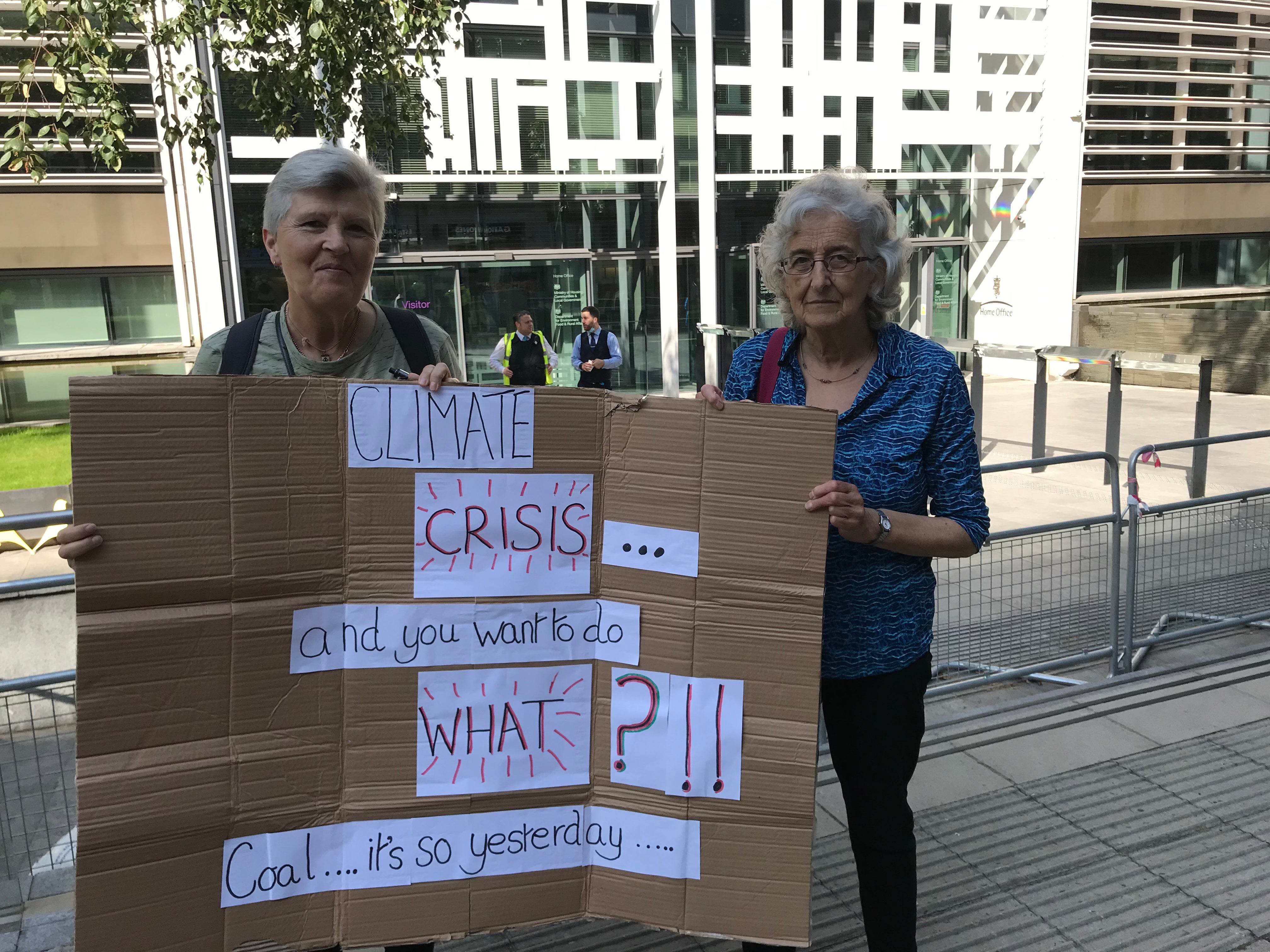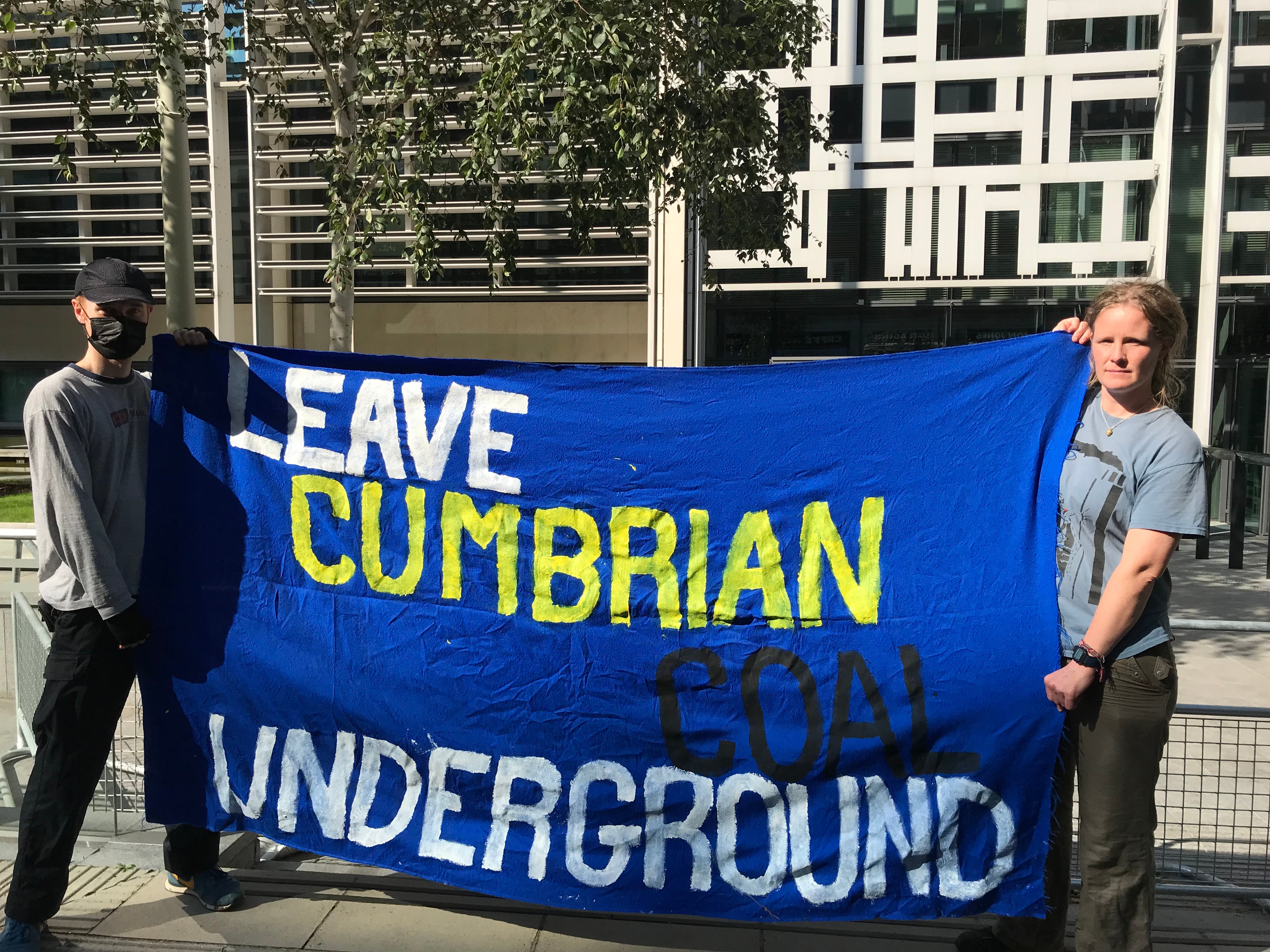Cumbria coal mine ‘madness’ draws protests as public inquiry opens
Environmental campaigners say government’s actions against climate emergency are ‘completely inadequate’

Your support helps us to tell the story
From reproductive rights to climate change to Big Tech, The Independent is on the ground when the story is developing. Whether it's investigating the financials of Elon Musk's pro-Trump PAC or producing our latest documentary, 'The A Word', which shines a light on the American women fighting for reproductive rights, we know how important it is to parse out the facts from the messaging.
At such a critical moment in US history, we need reporters on the ground. Your donation allows us to keep sending journalists to speak to both sides of the story.
The Independent is trusted by Americans across the entire political spectrum. And unlike many other quality news outlets, we choose not to lock Americans out of our reporting and analysis with paywalls. We believe quality journalism should be available to everyone, paid for by those who can afford it.
Your support makes all the difference.Environmental protesters across the UK have demonstrated against the “madness” of permitting a new coal mine in west Cumbria as the public inquiry into the controversial plan gets underway.
If the fossil-fuel project near Whitehaven is given the green light, it would be the first deep coal pit to open in the UK for 30 years.
Demonstrators in London and Cumbria believe the idea should be scrapped, pointing to the climate emergency and the government’s pledge to decarbonise the economy by 2050, while proponents of the scheme argue it will create much-needed jobs.
“If you think I’m furious, it’s because I am,” said a visibly frustrated Pamela Laurence outside the headquarters of the Ministry of Housing, Communities & Local Government (MHCLG) in London on Tuesday morning.
Along with dozens of other campaigners, she attended the rally to voice her opposition to the mine, which would dig up coking coal for use in steel production. Critics say renewably-produced hydrogen can and should replace it.
Ms Laurance told The Independent that ministers have left the climate crisis on the backburner for too long, prioritising other crises instead and delaying meaningful action to reduce carbon emissions.
For her, individual behaviour should become more sustainable but only national action will ultimately make the difference. “We need massive action, and we have seen the government can do that when they put their mind to things.”
Nearby, Jill Cass stood beside her handmade sign reading “coal is...so yesterday”. She said: “We’re in the middle of the climate crisis and they want to open a coal mine. This is madness.”

She and her colleagues said they were relieved that there was a public inquiry, called by cabinet member Robert Jenrick after the strong backlash against the proposal and Cumbria County Council’s approval of it.
But Victor, who chose not to give his surname, offered a more damning verdict: “It is insane there is even an inquiry; the facts are plain that the last thing on earth we need is a new coal mine.” He said that, for the time being, the government’s response to the climate crisis was “completely inadequate”.
Demonstrators in London said they feared the Cumbria mine debacle would have a negative impact on the UK’s ability to persuade other countries to lower their greenhouse gas emissions, ahead of the COP 26 summit in Glasgow next month.
Anne Harris, from the Coal Action Network, said Boris Johnson’s Cabinet needed to clean up its act. “The UK government wants to be seen as a world leader on climate change, but to be a leader you have to act, not just talk targets,” she said.
She said that the steelworks at Port Talbot and Scunthorpe are two of the largest single-emitters in Britain, and said that if opened, the Cumbria coal mine would emit an estimated 9 million tonnes of carbon dioxide each year until 2049. “We simply can’t release that carbon into the atmosphere,” she said.

The Coal Action Network employee added that the UK was far behind other countries in decarbonising its steel industry. “There is a lot of movement on it globally, and the UK is behind on that innovation,” she said.
Hundreds of miles to the north, around 50 people gathered at the site of the potential new coal mine and hung fabric canaries on the perimeter fence in protest. Jill Perry, the secretary of the local Green Party, helped organise the demonstration. “It was a celebration of the fact that we now have a public inquiry. And a reminder that we now want to keep the issue in the public spotlight,” she told The Independent over the phone.
Ms Perry said locals had already suffered a lot due to climate change, citing the three “catastrophic” floods that have affected the area since 2015. To her, it was a “no-brainer” that the mine proposal be ditched and common sense that an emphasis on green jobs would be far better for local people.

Tony Bosworth, a Friends of the Earth climate campaigner, supported this opinion. “Cumbria deserves better than a new coal mine that will damage the local environment and increase climate-wrecking emissions,” he said. “The steel industry is rapidly moving away from coal, so the government should be focusing on developing green industry and the thousands of new long-term jobs this would bring.
“With the world facing the potential of catastrophic climate change, we have to leave coal, gas and oil in the ground.”
At the start of the public inquiry on Tuesday, Gregory Jones QC, representing the coal firm West Cumbria Mining (WCM), warned that blocking the development would simply mean “offshoring emissions”.
He claimed that the mine would create 532 jobs, 80 per cent of which would be filled by the local workforce. "This is a fantastic opportunity for the region and it’s no surprise it’s got local support," Mr Jones said.
Ms Perry disagreed and suggested that the local population was much more divided on the issue. However, she is much more assured about the progress that has been made since the plan for a mine first surfaced. “Over the last seven years and, in particular, over the last six months, so much has changed. The tide of public opinion has swung in our favour.”
Join our commenting forum
Join thought-provoking conversations, follow other Independent readers and see their replies
Comments